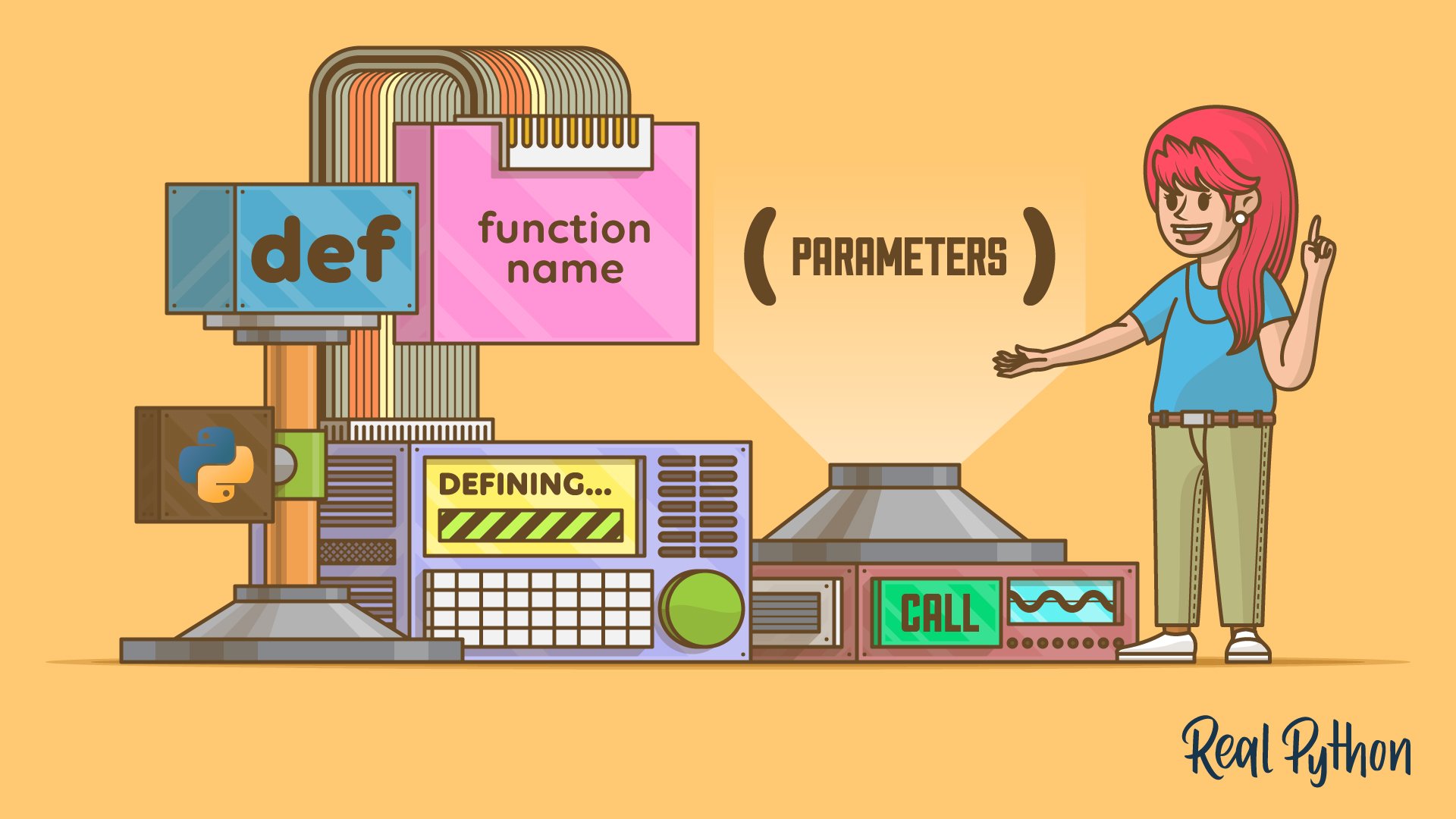def
In Python, the def keyword defines a function, which is a reusable block of code that can accept data input, perform a specific computation or task, and return a result or produce a side effect. Functions allow you to encapsulate a piece of logic and execute it whenever you need to by calling the function’s name with a pair of parentheses.
Python def Keyword Examples
Here’s a short example of how to define a function using the def keyword:
>>> def greet(name):
... return f"Hello, {name}!"
...
>>> greet("Alice")
'Hello, Alice!'
In this example, the def keyword creates a function named greet() that takes a single argument, name. When you call greet("Alice"), it returns the string "Hello, Alice!".
Python def Keyword Use Cases
- Encapsulating code into reusable functions to avoid repetition and improve maintainability
- Implementing complex logic in a modular way by breaking it down into smaller, manageable functions
- Enhancing code readability by providing descriptive function names and documentation
- Facilitating testing and debugging by isolating specific pieces of logic
Related Resources
Tutorial
Defining Your Own Python Function
Learn how to define your own Python function, pass data into it, and return results to write clean, reusable code in your programs.
For additional information on related topics, take a look at the following resources:
- Using and Creating Global Variables in Your Python Functions (Tutorial)
- Python's Built-in Functions: A Complete Exploration (Tutorial)
- How Do You Choose Python Function Names? (Tutorial)
- Using Python Optional Arguments When Defining Functions (Tutorial)
- Defining and Calling Python Functions (Course)
- Defining Your Own Python Function (Quiz)
- Defining and Calling Python Functions (Quiz)
- Working With Global Variables in Python Functions (Course)
- Using and Creating Global Variables in Your Python Functions (Quiz)
- Python's Built-in Functions: A Complete Exploration (Quiz)
- How Do You Choose Python Function Names? (Quiz)
- Defining Python Functions With Optional Arguments (Course)
- Using Python Optional Arguments When Defining Functions (Quiz)

